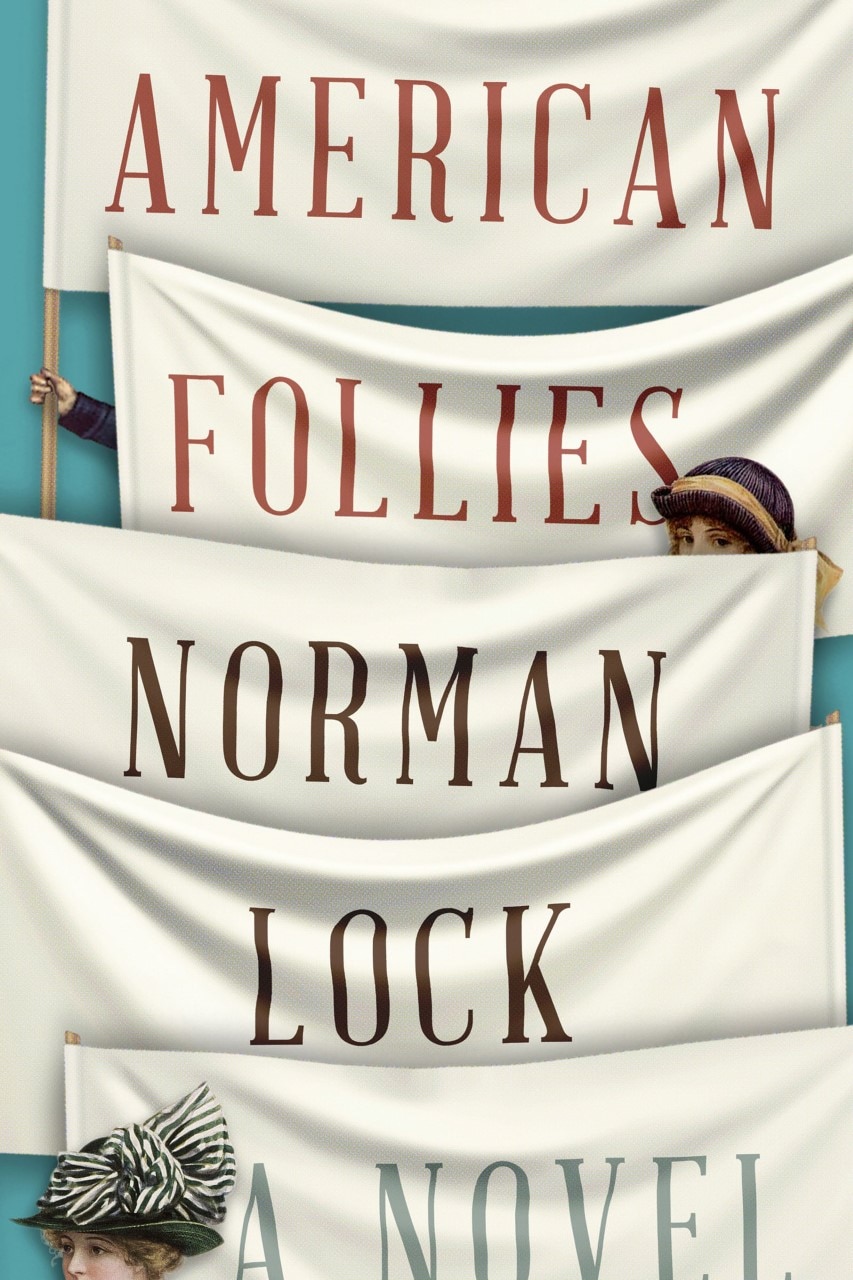‘American Follies’ by Norman Lock book review
[ad_1]
Yet from such dark materials, Lock fashions surprisingly entertaining fiction. His protagonists are witty and engagingly ironic. They shrewdly assess the human flaws of revered literary and historical figures while caustically delineating America’s march toward empire over the bodies of indigenous peoples and enslaved Africans. They enlist our sympathies by openly avowing their unreliability as narrators, reminding us at every turn that memory plays tricks, and reality is mutable.
The latest example of this beguiling breed is Ellen Finch, who emerges from a supporting role in “Feast of the Cannibals,” the series’s sixth book, to take center stage in its seventh, “American Follies.” Her brother-in-law’s death in the previous novel has sent Ellen’s husband west to look for work, leaving her pregnant and in desperate need of a job in September 1883. She gets hired as a stenographer/typist for Susan B. Anthony and Elizabeth Cady Stanton by pretending to be unmarried, judging correctly that these suffragists, “besotted on the intoxicant of high ideals,” will favor a victim of man’s inhumanity to woman over a respectable wife.
“In those days I was often cynical,” Ellen admits, telling her story 20 years later. Her sardonic portrait of the crowds at the opening day festivities for the Brooklyn Bridge, “choked to maudlin tears with a patriotic sentiment,” bears her out, as does her description of a visit with reporter/reformer Jacob Riis to a foul, dangerously overcrowded Manhattan slum, “familiar to rent collectors, if not to health inspectors.” Ellen knows the world is an unjust place, and she appreciates Anthony and Stanton’s determination to change it, even though she finds them overbearing.
The feminist icons get a reality check from Margaret Fuller Hardesty, a (fictional) dwarf in P.T. Barnum’s troupe who gives them an uncomfortable view of how society’s misfits feel about being patronized. When Anthony and Stanton propose bringing Margaret along on their lecture tours as “an example . . . of the exploitation of weakness and a disadvantaged position,” she replies coldly that what she does with her life is her own affair. “Mr. Barnum treats me with consideration.”
Indeed, although Anthony and Stanton prove their mettle as the plot careens forward, Barnum’s antic spirit presides over “American Follies.” The apparently realistic action becomes increasingly surreal, beginning with Ellen’s bizarre conversation at Bellevue Hospital with Henry James (whose manuscripts she has typed and “thought tedious”). This first intimation that things are not quite what they seem in Ellen’s recollections is followed by an encounter with a member of Barnum’s troupe, now claiming to be a Secret Service man and asserting that Ellen’s absent husband is an anarchist. When Ellen’s baby is kidnapped, she enlists the help of P.T. Barnum, and he sends her to the clairvoyant Madame Singleton, whose Ouija board reveals that the Ku Klux Klan is responsible.
By the time Ellen, Margaret, Anthony and Stanton board Barnum’s private train for Memphis, where the baby is to be “sacrifice[d] at the foot of the fiery cross,” readers may well feel as “overwhelmed with absurdity” as Ellen.
Lock isn’t striving for credibility in the events that erupt from there, or for an emotional response to the fraught subject of an infant’s abduction and threatened murder. He aims to make palpable Barnum’s contention that “history is one smashup piled on top of another, the shards glued together with irony.” Since Barnum proves to be both the plot’s deus ex machina and the deliverer of the novel’s most terrifying speech, we may conclude that Lock expects us to keep an ironic distance as well. The belated revelation of the cause of Ellen’s delusions is almost beside the point.
“American Follies” is an ambitious book that sprawls over some material that could have been better developed, in particular the intermittent attempts to see race relations through the lens of a minstrel show. Nonetheless, this provocative, funny and sobering novel makes another valuable addition to Norman Lock’s impressive body of work.
Despite the American Novels’ dark subject matter, their impact is exhilarating as well as scarifying. In “American Follies” as in its predecessors, Lock’s supple, elegantly plain-spoken prose captures the generosity of the American spirit in addition to its moral failures, and his passionate engagement with our literary heritage evinces pride in its unique character possibly equal to his chagrin over our bloodstained past.
Wendy Smith is the author of “Real Life Drama: The Group Theatre and America, 1931-1940.”
